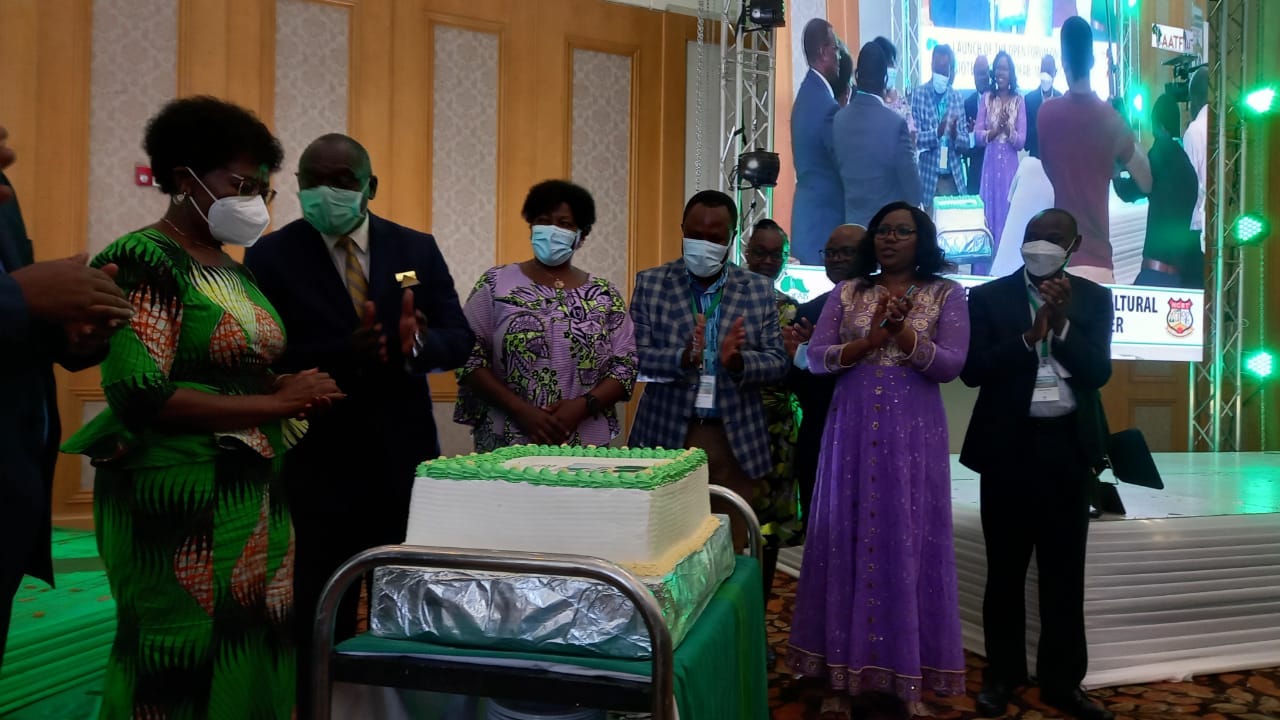OFAB opens its door in Malawi
The move has been billed as an opportunity for the country to facilitate awareness creation and information sharing to demystify all myths surrounding the advancement of agricultural biotechnology.
MALAWI: The Africa Agricultural Technology Foundation's Open Forum for Agricultural Biotechnology (OFAB) project has officially added Malawi to the list of countries in which it operates on the continent.
The forum is an educational platform that brings together stakeholders in the field of biotechnology and the general public to facilitate interactions, knowledge sharing and exchange, contacts, and the exploration of new avenues for bringing the benefits of biotechnology to the agricultural sector.
Minister of Education Agnes NyaLonje billed the development as an opportunity for the country to facilitate awareness creation and information sharing to demystify all myths surrounding the advancement of agricultural biotechnology when she officially launched OFAB Malawi Chapter in the capital Lilongwe on Friday.
The Minister, who delivered a heartfelt key note address to the assembled delegates, added that the government was excited to collaborate with OFAB, a project she claims will facilitate constructive conversations among key stakeholders and decision-makers on agricultural biotechnology.
“For both policymakers and the larger public, OFAB facilitates quality engagements and conversations on the safety and benefits of modern biotechnology,” she said.
Nyalonje went on to say that biotechnology can play a critical role in economic growth and wealth creation.
“Technology is key to facilitate Malawi’s speedy attainment of capacity to be food secure, create wealth for the nation and achieve socio-economic development as stipulated in the Malawi Growth and Development Strategy (MGDS) and Malawi 2063,” the minister explained.
Her sentiments are in line with those of other international commentators who believe the move will benefit Malawi in terms of knowledge and expertise in the field of agricultural biotechnology, which has been dubbed one of the world's fastest-growing technologies.
According to the International Service for the Acquisition of Agri-Biotech Applications (ISAAA) 2018 Status Report, a total of 70 countries adopted biotech crops through cultivation and importation.
“In 2019, a total of 29 countries planted biotechnology crops globally, with Africa doubling the number of her biotech countries from the initial list of biotech countries from three to six, including Malawi, Ethiopia and Nigeria,” says the report.
Dr Wilkson Makumba, Director of Agricultural Research Services (DARS), spoke on behalf of the Ministry of Agriculture, saying the move will reposition the country to effectively combat various challenges facing agriculture, the country's economic mainstay.
Low crop food and nutrition insecurity, environmental degradation, biotic constraints [diseases, insect pests, and weeds], and abiotic constraints [drought/floods, nutrient deficiencies, climate change] are all factors that have a negative impact on agricultural productivity.
“Once adopted, biotechnology will go a long way towards offering sustainable solutions to the country’s major problems of food insecurity, poor health and nutrition, low industrial output, poverty, and environmental degradation,” he said.
Malawi, according to Nyalonje, has yet to fully benefit from recent advances in modern biotechnology due to its reliance on traditional biotechnology.
Professor Emmanuel Kaunda, the board chairperson of the National Commission for Science and Technology (NCST), expressed hope that the platform will help debunk myths about biotechnology in most countries.
Through improved communication, he added, OFAB Malawi can help bridge the gap between the science researcher and the end-user, in this case, the farmer.
Kaunda said: “Scientists usually communicate in jargon among themselves. However, scientific breakthroughs are of no use if they are not adopted by the end-user.
“Biotechnology needs a consistent information sharing platform so that stakeholders can understand the technology and consequently choose innovations based on science amid negative propaganda and misinformation that surrounds the technology. Therefore, the establishment of the OFAB Malawi chapter, with their communication skills, will help to communicate effectively.”
OFAB Africa Project Manager Vitumbiko Chinoko has since vowed to ensure that the forum, which was founded in 2002, achieves its overall goals.
The goals include increasing understanding and acceptance of agriculture-biotech and contributing to the creation of a decision-making environment.
“One of our prospects is to convene high-level policy dialogues to profile role of agricultural biotechnology in food systems. As you can see, biotechnology advances are reshaping agriculture and improving food security among other spheres,” said Chinoko.
The Bill and Melinda Gates Foundation funds OFAB through AATF.
Kenya, Uganda, Tanzania, Nigeria, Ghana, Burkina Faso, and Ethiopia are also participating in the project. Rwanda and Mozambique, along with Malawi, are the newest members of the bloc.





